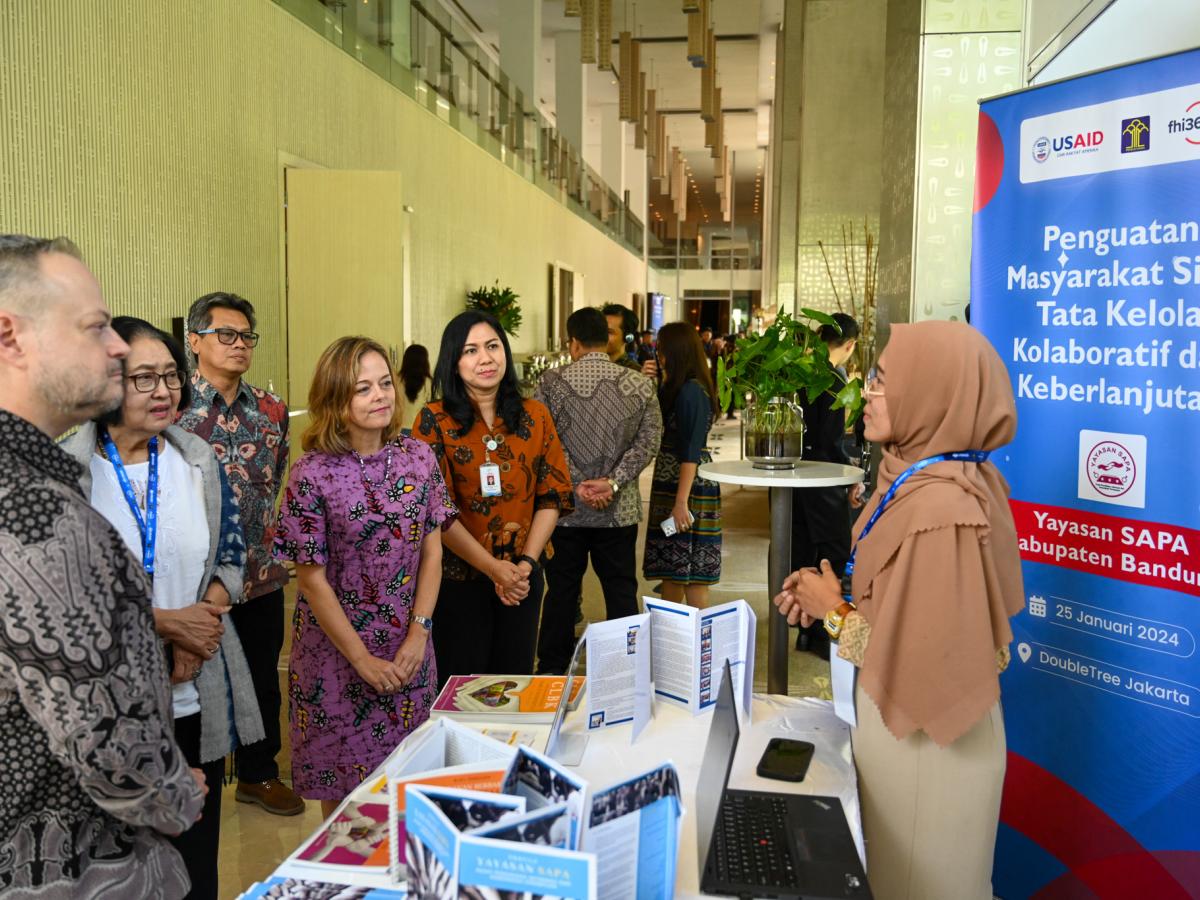For Immediate Release
Press Release
JAKARTA – On January 25, the United States, through the U.S. Agency for International Development (USAID), together with the Ministry of Law and Human Rights and the National Agency for Development Planning, brought together civil society partners from 32 districts in six provinces of Indonesia to celebrate the successful tenure of the USAID-MADANI Civil Society Support Initiative.
USAID-MADANI, which concludes in February, has supported Indonesian civil society organizations (CSOs) in the provinces of Banten, Central Java, East Java, South Sulawesi, West Java, and West Kalimantan since 2019. The activity strengthened the management and sustainability of CSOs, helping to promote government accountability and communal tolerance.
“The United States, through USAID, supports Indonesia’s efforts toward accountable, transparent, and inclusive governance,” said USAID Indonesia Deputy Mission Director Erin Nicholson. “I’m proud of our work together to strengthen the critical role of Indonesia’s civil society organizations to build a healthy, diverse, just, respectful, and tolerant democracy.”
Through this innovative program, USAID facilitated stronger partnerships between local governments, CSOs, and other partners by promoting the relationships, networks, and systems that make collaborative and engaged governance possible.
“MADANI is in line with the Ministry of Law and Human Rights’ mission in strengthening government accountability and social diversity through improving the quality and capacity of civil society organizations. After five years, MADANI has been able to optimize MADANI CSO partners in 32 districts as the main actors of development in the region and as one of the important pillars of democracy besides the government and the private sector in supporting the collaboration of good governance in the region,’’ said Hantor Situmorang, Head of the Public Relations, Law, and Cooperation Bureau at the Ministry of Law and Human Rights.
USAID’s successes include new community-led initiatives and citizen-recommended policies and practices adopted by district governments. Over the life of the program, USAID’s CSO partners signed 115 agreements with local governments, private companies, and philanthropies valued at more than $1.2 million to deliver better primary health and education services.
For example, in the health sector, USAID improved the capacity of CSOs that then worked with primary health centers (puskesmas) to improve the quality of health services. The improvements included expanding service hours and ensuring that the health centers are sufficiently staffed when open. These initiatives improved the quality of care at 81 puskesmas in 15 districts, improving the services provided to almost 12,000 pregnant women, as well as other patients, over the life of the activity.
USAID will continue to support the work of Indonesian CSOs to advocate for effective public services for Indonesian communities.
For more information, visit http://indonesia.usaid.gov/ or contact USAID Communications Specialist Swiny Andina at +62 (21) 5083-1000 or sandina@usaid.gov.

